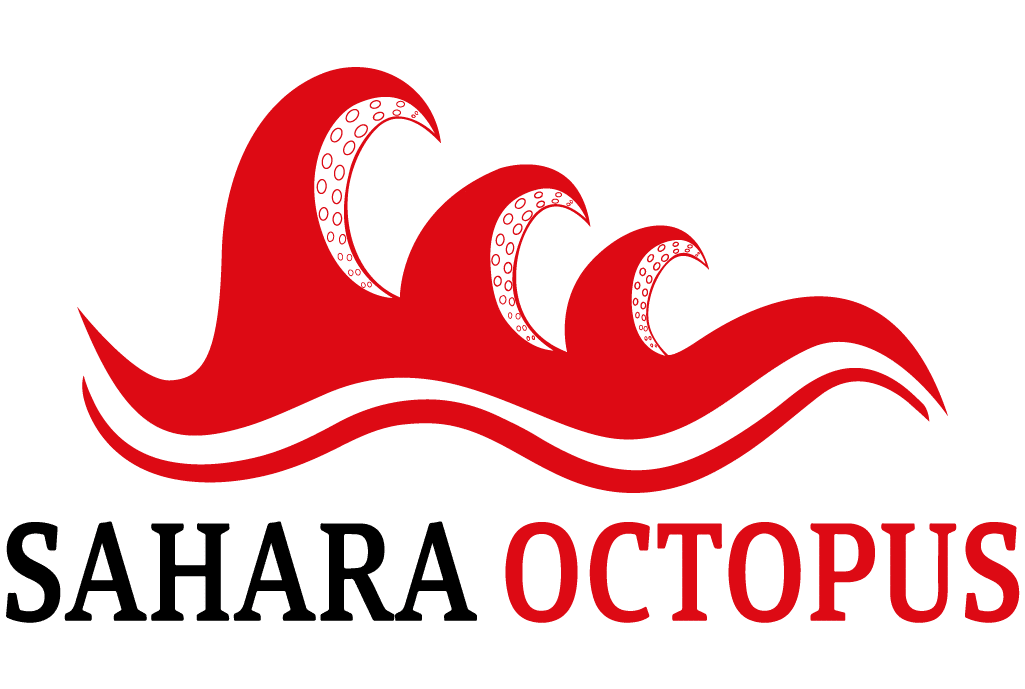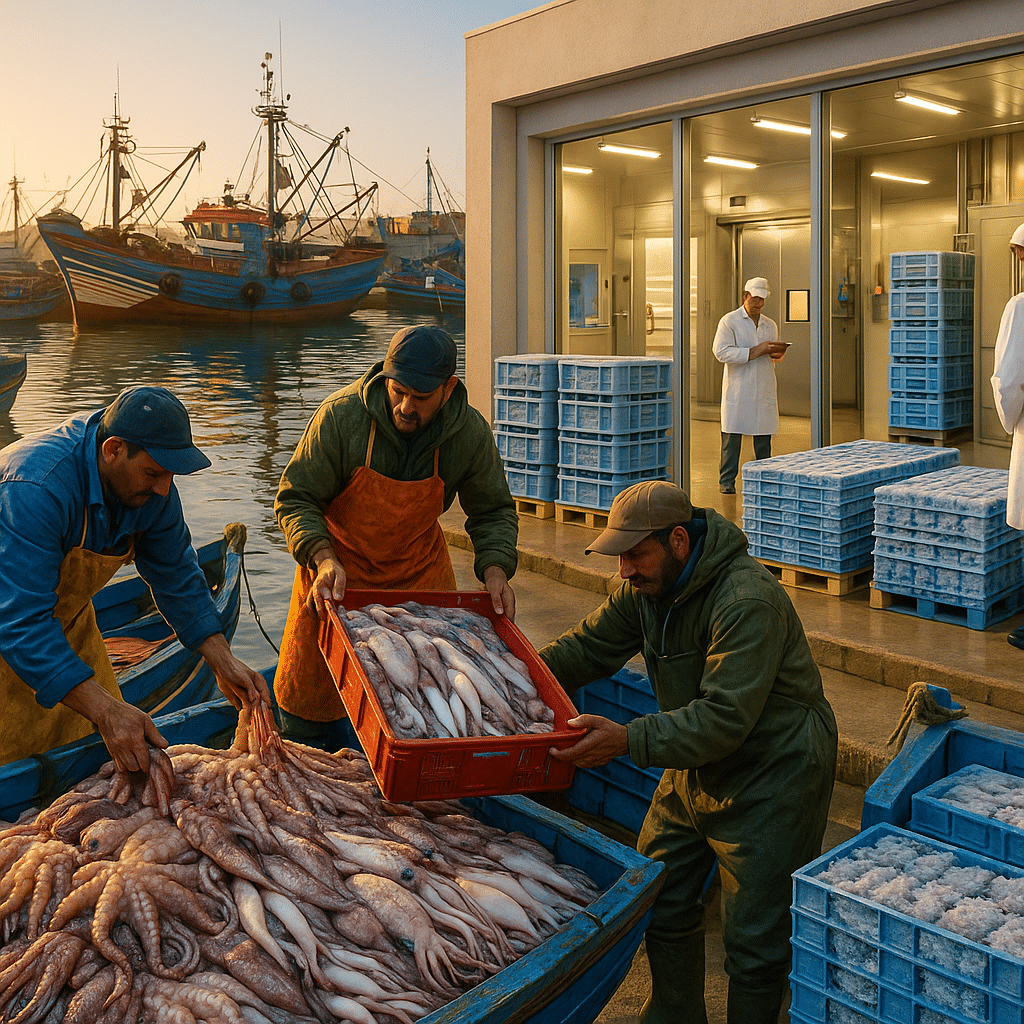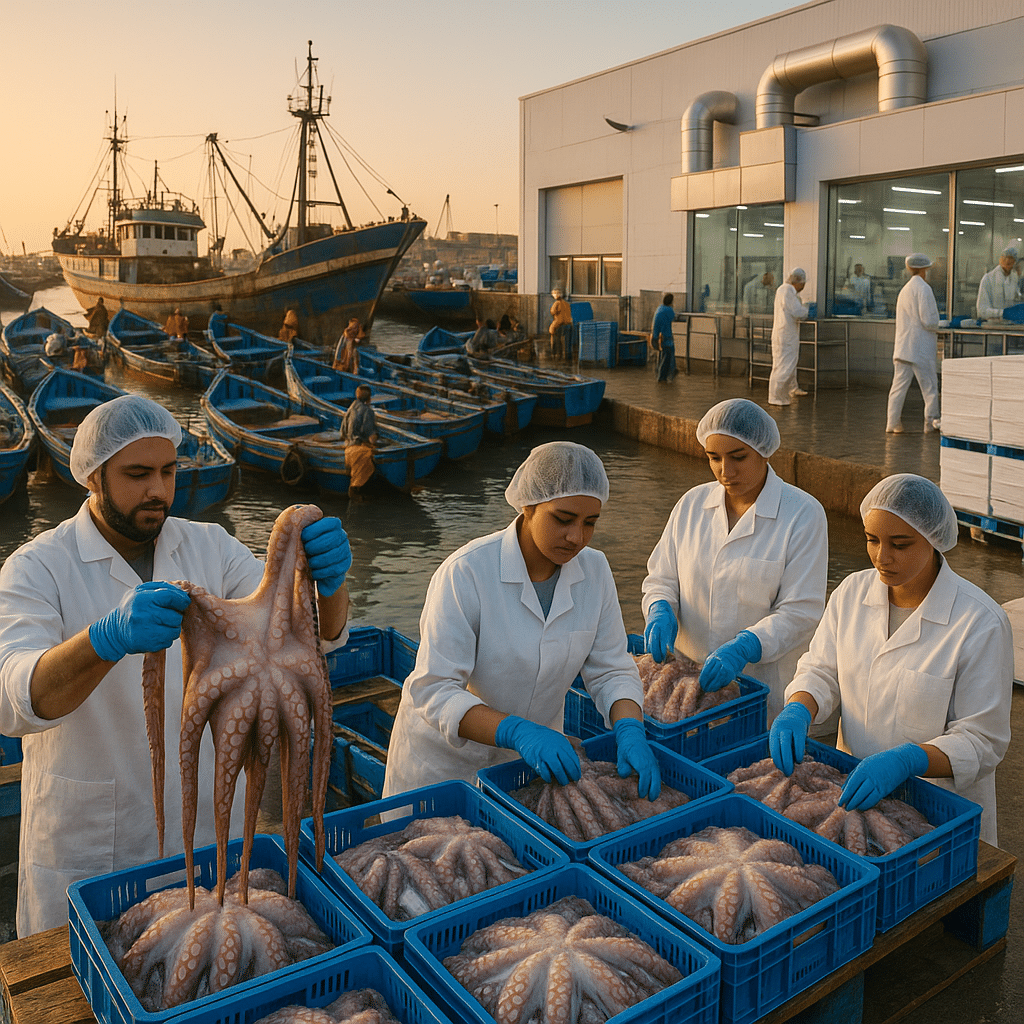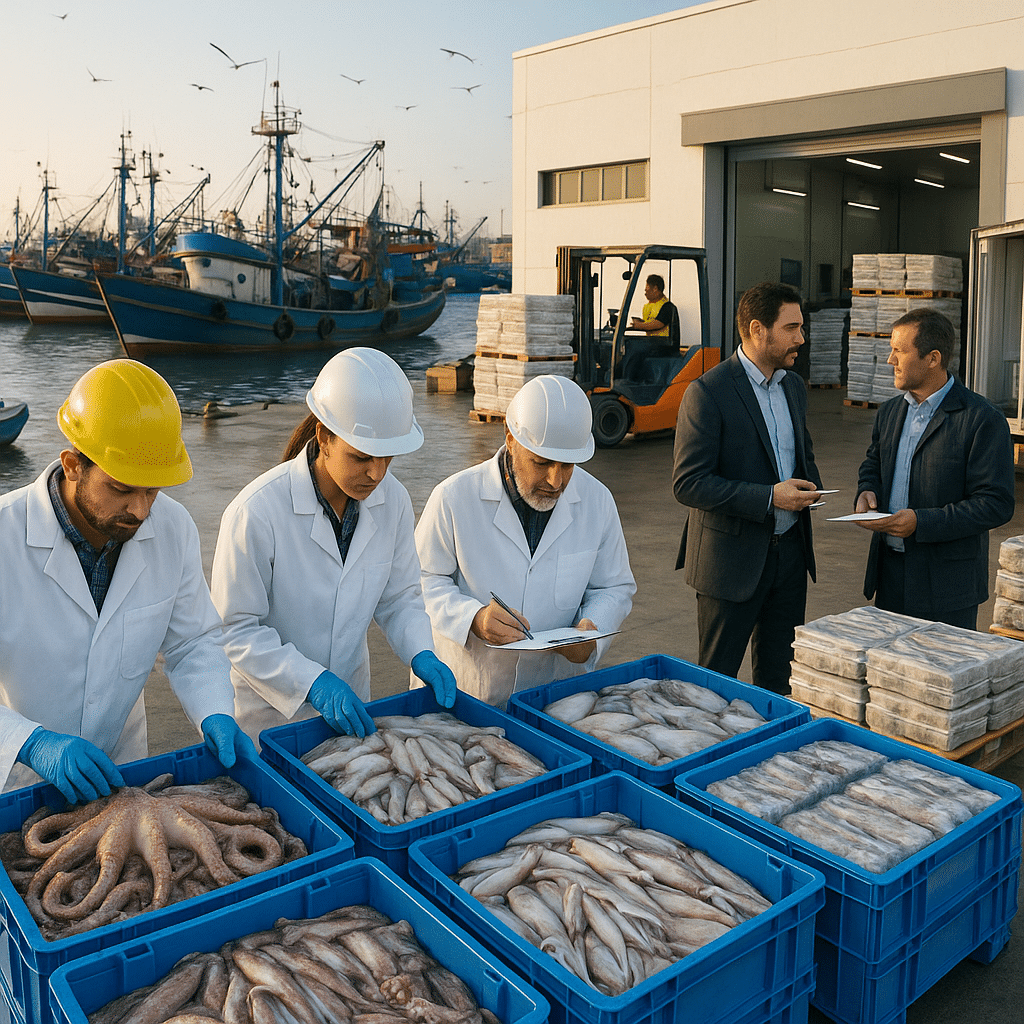Morocco’s seafood export industry(Seafood exporters) uniquely blends premium quality, sustainable practices, and strategic alignment with global demand. Importers seeking trustworthy partnerships should deeply understand Morocco’s competitive edge and suppliers, such as Sahara Octopus, to foster long-term success in this dynamic market.
Introduction
Morocco has emerged as a powerhouse in the global seafood industry. It offers exceptional product quality, sustainable practices, and seamless compliance with international standards. If your business seeks a reliable seafood exporter from Morocco, the benefits are undeniable—pristine Atlantic waters, rigorous processing standards, and market-savvy suppliers.
From premium octopus and squid to expertly processed fish, Moroccan seafood exporters integrate advanced freezing methods with sustainable sourcing under the Halieutis framework. As a result, they deliver superior taste and freshness while meeting stringent regulations, including those of the EU. This simplifies the import process and guarantees supply reliability for buyers worldwide.
Below, discover why Morocco stands out as a top seafood export destination and how reliable suppliers like Sahara Octopus ensure quality, efficiency, and sustainability in their offerings.
Morocco’s Strategic Role in Global Seafood Markets
Morocco has solidified its status as a leading seafood exporter due to its unique location connecting the Atlantic Ocean and Mediterranean Sea. With access to FAO Zone 34, its waters are abundant with premium species, including octopus, squid, and sardines. This biodiversity positions Morocco as a critical supplier to markets like Europe, where consumers value sustainably sourced seafood.
Moreover, the Moroccan government supports sustainable fisheries through initiatives like the Halieutis strategy. This framework promotes resource optimization while safeguarding ecosystems. Consequently, Moroccan seafood exporters gain credibility among global buyers prioritizing ethical sourcing.
Major exporters, such as Sahara Octopus, maximize Morocco’s advantages, supplying premium products like whole frozen octopus to discerning European buyers. Such offerings exemplify the country’s dedication to quality, sustainability, and relevance in the global seafood trade.
The Certifications Behind Moroccan Seafood Excellence
Moroccan seafood exporters adhere to stringent standards that exceed many international benchmarks. These certifications ensure quality and compliance:
- HACCP Compliance: Guarantees meticulous quality control, from harvest through packaging.
- ISO Certifications: Includes ISO 9001 (Quality) and ISO 22000 (Food Safety), reassuring buyers of dependability.
- MSC Certification: Recognizes efforts in sustainable fishing, particularly with species like octopus.
Additionally, exports comply with the EU’s traceability requirements, ensuring transparency across supply chains. Verified processes make Moroccan seafood highly appealing to importers prioritizing quality and sustainability.
Top Moroccan Seafood Products: A Diverse Portfolio
The diversity of Morocco’s seafood offerings distinguishes it from global competitors. Its rich marine ecosystem provides buyers with quality products loved worldwide.
Octopus: Morocco’s Crown Jewel
Morocco is globally celebrated for producing premium octopus, particularly from FAO Zone 34 waters. Sustainable fishing practices ensure these products meet high market standards, especially in regions like Spain and Italy. Companies such as Sahara Octopus specialize in advanced freezing methods. These techniques preserve octopus freshness, taste, and texture, even after international shipments.
Furthermore, Morocco’s quota management system, an integral part of the Halieutis strategy, protects marine ecosystems. This proactive approach guarantees a consistent, high-quality octopus supply for years to come.
Sardines: Small Yet Mighty
Morocco ranks among the world’s largest sardine exporters. Sardines from these waters are renowned for their rich omega-3 content, making them highly sought after in health-conscious markets. Export formats range from canned sardines to frozen bulk shipments, catering to retail and foodservice needs globally.
Cephalopods Beyond Octopus
In addition to octopus, Morocco’s squid and cuttlefish exports significantly strengthen its seafood export portfolio. Advanced processing ensures these products cater to evolving consumer preferences in Europe and Asia. As a result, Moroccan cephalopods are integral to countless culinary traditions.
Sustainability: A Cornerstone of Moroccan Exports
Morocco’s fisheries operate under the Halieutis strategic framework, which emphasizes both sustainable harvesting and marine preservation. Seasonal bans, fishing quotas, and eco-labeling contribute to Morocco’s reputation as an environmentally responsible seafood supplier.
Sahara Octopus: Leading by Example
Exporters like Sahara Octopus are industry leaders in sustainability. By collaborating with artisanal fishing cooperatives, they minimize ecological impact. Meanwhile, advanced freezing and cold chain logistics reduce waste and maintain seafood quality. Importers working with such suppliers join global efforts to promote ethical sourcing practices.
Advantages for European Buyers
Morocco offers critical benefits for European importers, including strategic proximity, unparalleled product quality, and a dependable supply of seafood.
Geographical Convenience
Located close to Europe, Morocco significantly reduces shipping costs and transit times. Exporters like Sahara Octopus optimize logistics, ensuring seafood remains fresh upon delivery—an essential advantage for markets in Spain, France, and Portugal.
Value-Centric Relationships
Morocco’s exporters prioritize long-term partnerships by offering tailored solutions. Buyers benefit from customized packaging, competitive pricing, and open communication, fostering trust and consistency across transactions.
Guidelines for Importing Moroccan Seafood
To successfully import seafood from Morocco, follow these essential steps:
- Verify Supplier Credentials: Partner with certified exporters, such as Sahara Octopus, to meet regulatory and sustainability benchmarks.
- Define Product Specifics: Clearly communicate product sizes, grades, and packaging preferences for a smooth negotiation process.
- Conduct Due Diligence: Tour facilities virtually or in person to ensure compliance with hygiene, processing, and traceability standards.
Conclusion
Morocco’s exceptional seafood quality, sustainable supply methods, and strategic proximity make it a global leader in the seafood export industry. Products such as octopus, sardines, and cephalopods from Moroccan waters are celebrated in Europe and beyond for both their flavor and traceability.
Certified suppliers like Sahara Octopus enhance the import experience through advanced logistics and sustainable practices. By collaborating with these exporters, importers secure premium products while championing ethical trade.
As demand for sustainable and reliable seafood grows, Morocco shines as a trusted trading partner. For importers ready to meet market challenges head-on, Morocco offers unmatched opportunities that combine quality, integrity, and innovation.



